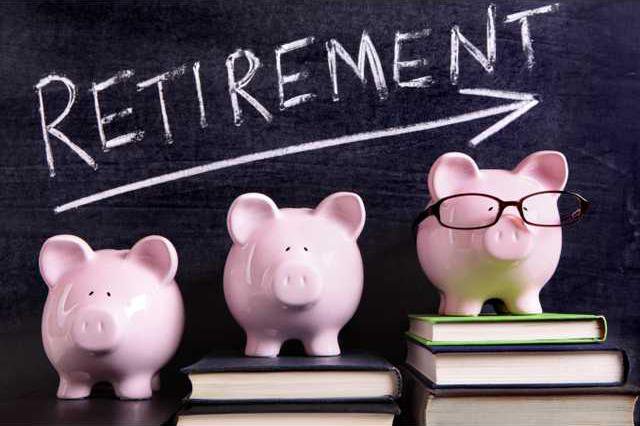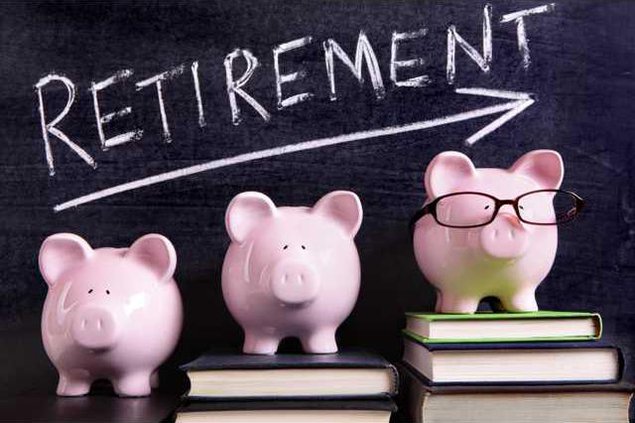![]() While retirement living can appeal to the nine-to-fiver with dreams of relaxing, traveling or buying a beach house, saving for retirement often breeds fear.
While retirement living can appeal to the nine-to-fiver with dreams of relaxing, traveling or buying a beach house, saving for retirement often breeds fear.
But if you follow these six simple rules for retirement savings, you can focus on the dream instead of the fear.
1. Don’t wait, start saving
Having a perfect understanding of how retirement planning works is not the foundation to build your future on.
“Don't wait until you have done extensive calculations before you start saving,” U.S. News and World Report’s financial responsibility reporter, David Ning, wrote, “because retirement planning is filled with assumptions and general rules of thumb. Start with an overview if you have to and tweak the details as you go.”
General wisdom says to start saving for retirement as soon as you can, ideally in your 20s. The earlier you begin, the less you’ll need to save a year. Standard practice suggests 12-14 percent of your income should go to retirement, but if you begin in your 20s it can be as little as 4-6 percent.
You can visit Vox.com’s retirement calculator to figure out how much of your income you need to start saving to live the life style you want here.
2. Know the cost of your lifestyle
One of the most important aspects to preparing for retirement, according to Ning, is understanding how much your life costs.
“If you don't already know how much you spend regularly, create an accurate picture of where your money is going,” Ning said. “Once you understand how much your current standard of living costs, you will be able to predict how much retirement is going to cost much more easily.”
3. Decide how you want to live
You’ll need to decide how you want to live in retirement. Do you expect to live how you do now or do you plan to live more modestly? Or do you imagine living larger in your later years? Depending on what you imagine for yourself will influence the percentage you need to pack away with each paycheck.
Jim Yih of Retire Happy said that you can’t properly answer the questions of when and how much until you’ve decided how you want to live during retirement.
“Knowing how much money you need depends on which lifestyle you envision retirement to look like,” Yih said. “While I think money and finance are very important aspects of retirement, they are not the only aspects.”
4. Pay off debt now
Popular advice tells people that retirement comes before all else.
“After all, the earlier you start saving, the more time your money has to grow. Plus, you don’t want to leave money on the table by not contributing enough to your 401(k) to receive the full employer match,” financial guru Dave Ramsey said. “While all this is true, it doesn’t take into account the fact that when people hit hard times, they will turn to their retirement accounts to make ends meet if they have no other options.”
Ramsey suggests focusing on curating an emergency fund and paying off debts to protect your retirement funds.
Also, Kiplinger’s financial reporter Eleanor Laise said that retirees, especially those over 75, are often targets of refinancing and debt-settling scams. She said, “You can boost your retirement security by learning to spot the debt traps that tend to snare retirees,” and she suggested taking advantages of opportunities to get out of debt long before retirement.
5. Think ahead
In the early 1930s, the U.S. government planned for the average age of retirement to be 65 years old. At that time, people had a 50 percent chance of living to 72 years old.
“So the average person lived seven fabulous years in retirement, assuming their health was good,” Carolyn McClanahan, former physician and Forbes’s financial reporter, said in her article “What Is the Best Way to Prepare and Invest for Retirement?” “Life expectancy is in the high 80s now.”
Living to 85 years old leaves a 65-year-old retiree 20 years to account for.
6. Plan for later than sooner
Many dream of early retirement, but according to Carolyn McClanahan, former physician and Forbes’ financial reporter, it’s best for your mental and physical health to wait as long as you can to retire.
“I learned when you turn 50 years old, you are not old,” McClanahan said in her article, “The Fallacy of Saving for Traditional Retirement.” “Through my experience as a financial planner and a doctor, the people who stop being engaged get old quickly and their brains seem to slip away into uselessness much faster than those who keep working. The healthiest and happiest people stay engaged, and the smartest people, stay engaged in meaningful work.”
EMAIL: nshepard@deseretnews.com TWITTER: @NicoleEShepard








